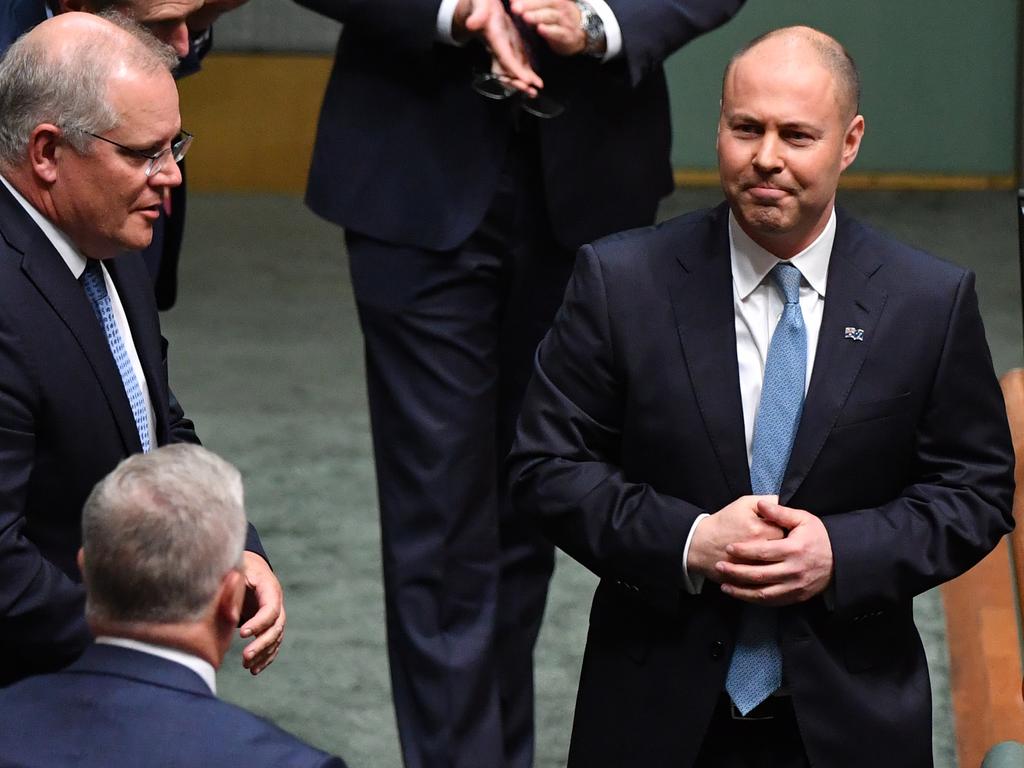Transparency clause in super fund reforms is a game changer

With leading industry funds constantly under fire for trade union links and a lack of transparency across investing activities, the new requirement — coupled with a changed definition that funds must act in the “best financial interests” of members rather than the former “best interests” — will be a game changer.
The finer details of how the Morrison government is going to run super reforms are contained in a supplementary Treasury document not included in the formal Budget Measures paper.
Alongside the requirement to offer a public company-style annual report and an Annual Members’ Meeting, big funds will now have to detail:
● Remuneration of key executives, in line with ASX-listed companies, along with any related entity of the fund.
● Marketing expenditures relating to promoting the fund, either directly or indirectly.
● Political donations, either directly or indirectly.
● Sponsorships relating to promoting the fund, either directly or indirectly.
● Payments to industry bodies or trade associations, either directly or indirectly.
● Related party transactions (including payments to non-investment entities).
Meanwhile, the wider attempt to clean up “big super” by minimising the risk of multiple accounts and making bad funds pay dearly for poor performance has been widely welcomed, although key questions are already emerging on the plan.
The portability reforms, which mean an employee can now keep their first super fund with them for their entire career, should ultimately lead to a serious reduction in the notorious issue of multiple super accounts.
Under new rules, the worst performing funds will have to notify their own members of just how bad they scored in a looming regulator test. Any fund that fails the test two years in a row will not be allowed to take on new members. The test will be run by the Australian Prudential Regulatory Authority.
Separately, new legislation is also on the way to beef up regulatory powers.
Back in 2018 the super fund activities of wealth manager IOOF were challenged unsuccessfully in court. The wealth manager had compensated customers with their own money but APRA could not prove its case under existing law. Now the law will change so that the super fund manager has to prove its case to the regulator.
Treasury frames the new rules this way: “In addition to strengthening the duty owed by trustees, the onus on demonstrating compliance with the new duty will be reversed so that trustees must establish that there was a reasonable basis to support their actions.”
A stronger APRA and a tightened definition that funds must act in their members’ best financial interests will threaten a range of controversial activities in big super funds, both industry and retail.
Many analysts believe the key outcome of the combined reforms package will be termination of the default system.
“This will ultimately lead to employers ceasing to offer default super funds, which represents a major shift in how the super industry has operated in Australia since the mid-1980s,” said CA AZ Superannuation Leader Tony Negline.
As part of the new regime the government plans to provide an independent super fund performance website for the public, which will be influenced by the tests managed by APRA. A debate on the merits of any super fund performance test is looming. Industry players warn it is very difficult to present comparison of super funds in a consumer-friendly manner that is both fair and easy to understand.
“We are working in this area for 15 years and I think they will find it very difficult to get the balance right,” says Kirby Rappell, the executive director of Superrating.
“The way you assess poor performance is crucial — if a fund has high fees is that because of its investment choices or something else?”
According to Treasury, the test methodology will be based on previous work adopted by the Productivity Commission and further refined by APRA in its Heatmap analysis. Treasury also claims it will not test funds on short-term performance. Rather, it will be calculated over an eight-year period that allows funds to target long-term returns and not blame “one bad year” for underperformance.
“These changes will see $10.7bn in higher returns for members over 10 years as members leave underperforming products, some underperforming products improve their performance and others merge with higher performing funds,” Treasury suggests.
The majority of the new rules are expected to commence on July 1, 2021.





The government’s move to reform big super funds will be done with a big stick: super funds are going to have to front up to members once a year and detail all remuneration, political donations, sponsorships and, crucially, “trade associations”.